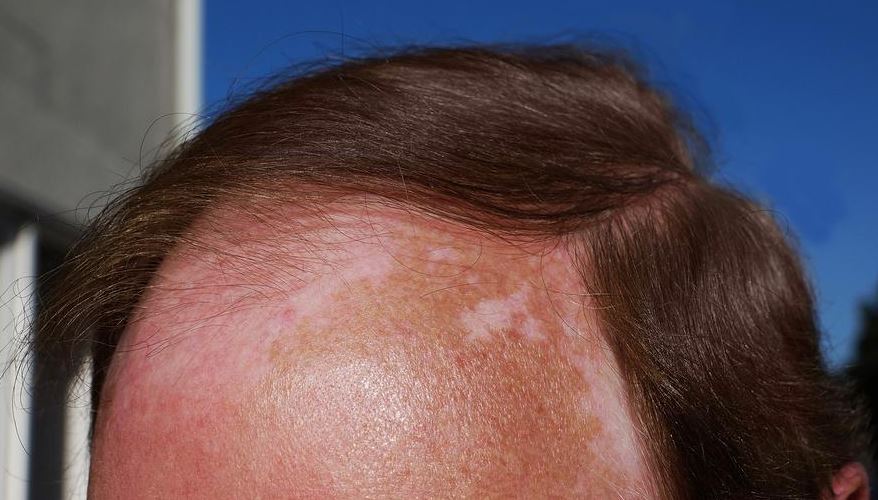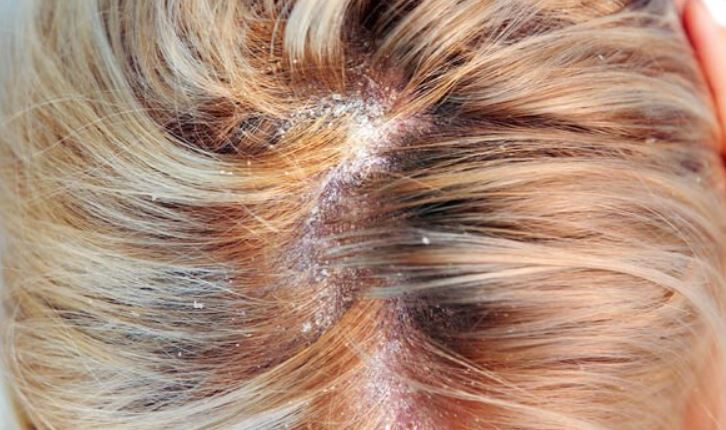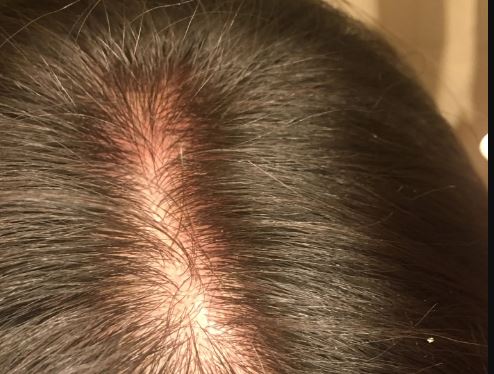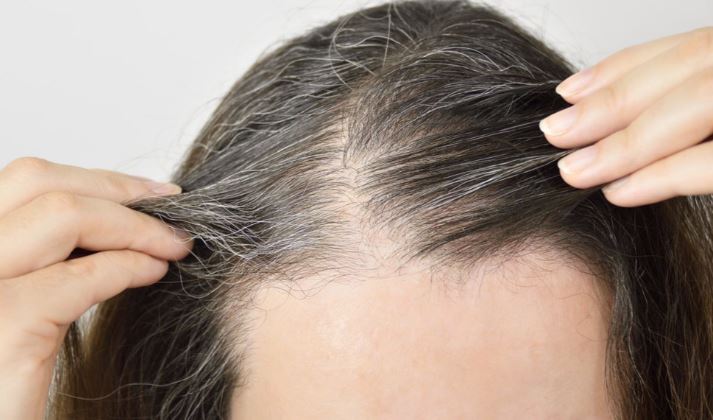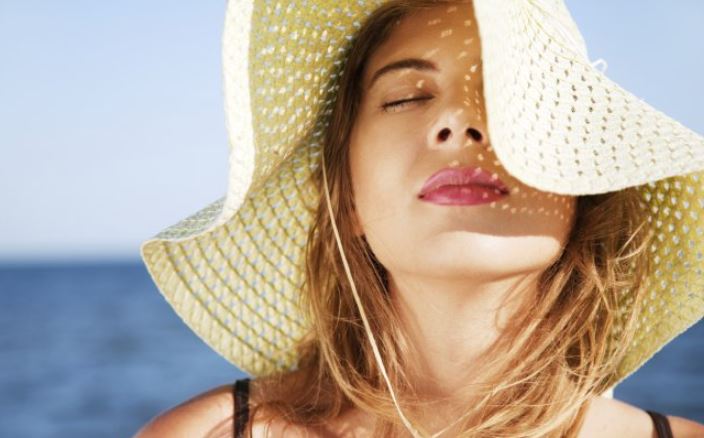The Dangers of Scalp Sunburn and How to Combat Them
It’s important to stay away from alcohol-infused styling products if you want to avoid scalp sunburn. These products can dry out your scalp, making it more susceptible to burning.
By now, you should be aware of how important it is to use SPF (Sun Protection Factor) every day. Slathering sunscreen all over your body is key to preventing skin cancer, sunburns, and early signs of aging, but there’s an area that is often forgotten about that is just as important as the rest of your skin and scalp.
It’s important to protect your scalp from the sun just as you would the rest of your skin,” says Chuck Hezekiah, an educator and brand ambassador at René Furterer. The scalp is vulnerable to the sun’s rays and may become exposed enough to cause an agonizing sunburn due to its lack of protection. Not only can a sunburn on the scalp be incredibly painful, but it can also lead to skin cancer.
Board-certified dermatologist at Marmur Medical in Manhattan, Dr. Rachel Maiman states that people without a lot of hair are more prone to scalp sunburns. Unfortunately, this type of sun damage can be more permanent than just a temporary discomfort.
To get a better understanding of how sunburned scalps can affect our skin and hair, we decided to consult with three different skin and hair experts. Read on to get their professional opinions and learn more about this topic.
How Does a Sunburn Affect the Hair?
Though sunburns often result in inflammation and irritation, thankfully, a sunburned scalp won’t have much of an effect on your hair. Hezekiah points out that if there is any impact, it will only be temporary. “There may be some shedding of skin, but it’s usually not enough to be noticeable. However, it does affect the skin’s microbiome, which then impacts the hair,” he explains.
According to Dr. Maiman, sunburns only affect the epidermis and not the hair bulbs, which are located deep in the fatty layer. Therefore, sunburns cannot have a detrimental effect on hair. In fact, they can actually help by increasing blood circulation to the scalp and helping hair growth.
How Does a Sunburn Affect The Scalp?
Just like the rest of the body, a sunburn on the scalp will bring about similar side effects – namely, discomfort, a little bit of pain, and if severe, some skin shedding after about a week. Spending too much time in the sun can result in a sunburn on the scalp, which can be quite uncomfortable.
Symptoms such as redness, irritation, and swelling may appear, while in more serious cases, blistering may occur. Nevertheless, these effects should be short-lived, with the symptoms likely to subside within 3 to 5 days.
Therefore, treating a sunburned scalp is similar to other parts of the body – we will get to that in a moment.
What does a scalp sunburn feel like?
To get started, it’s worth looking into what a sunburn on the scalp actually feels like. Similar to other parts of the body, the scalp is susceptible to various grades of sunburn.
Usually, sunburns are either first-degree or second-degree burns. If you get a sunburn on your scalp, it is likely to be accompanied by redness, irritation, and swelling. In more serious cases, blistering may occur, which is particularly common on the scalp. In the case of severe sunburn, the skin may even peel off. This is known as a third-degree burn.
As your scalp sunburn is tending to itself, your skin may desquamate. This is a process similar to dandruff, and could potentially lead to a temporary hair loss. However, with appropriate care, the desquamation should cease in the following week.
Can scalp sunburn cause baldness?
Scalp sunburn can be very uncomfortable and if it is especially intense or penetrating, the inflammation it causes can lead to telogen effluvium, a condition that can lead to temporary hair loss. This would be the last thing someone with thinning hair would want to experience, yet it is those individuals who are most vulnerable to scalp sunburn.
How to prevent scalp sunburn
High SPF sunscreen
The American Academy of Dermatology advises utilizing a broad-spectrum sunscreen with an SPF rating of 30 or higher, with water-resistant sunscreen as a supplement for long-term protection. For best results, sunscreen should be applied regularly.
If your sunscreen meets the standards of the American Academy of Dermatology, you will be well-equipped to avoid the detriments of harmful UV rays. Sunscreen is the most effective way to repel scalp sunburn, and should be applied liberally.
Wear a hat
To reduce the risks of a sunburn, the best way to go is to cover up your skin. Wearing a hat to protect your scalp is a great start as it will completely obstruct your exposure to UV rays. It’s best to pick a darker shade hat and a tighter woven fabric for better protection, as straw might let UV rays slip through the gaps in the hat.
Treating scalp sunburn
Moisturize and cool
For the purpose of aiding healing, it is recommended to use a moisturizing lotion on the skin while it is still damp. To further help protect the scalp from too much peeling and flaking, it should be kept hydrated with an appropriate product. Soothing remedies such as aloe vera can also be used to cool the skin and reduce any inflammation. Moreover, it is advised to avoid using products that are petroleum or oil-based, as they can worsen the discomfort of the burn.
Hydrate
When exposed to the sun for an extended period of time, not only can you lose a significant amount of fluid and electrolytes through sweating, but sunburns can also draw fluid to the surface of the skin and cause dehydration.
Ensuring your body is replenished with the necessary nutrients is essential for proper healing and hydration. Drinking plenty of water and replenishing electrolytes are two of the best ways to make sure your body is receiving the correct nutrients it needs to recover and heal the skin.
Avoid drying or irritating shampoos
After you’ve gotten a sunburn on your scalp, your skin is usually extra sensitive. Sulfates can be very drying and irritating if used on sunburned skin, so it’s best to opt for natural and moisturizing shampoos instead. Additionally, hot water should be avoided when shampooing as it will only cause further irritation and discomfort. Using cool water instead is more soothing and helps to reduce pain.
What's the Best Way to Treat a Sunburned Scalp?
If the sunburn has already taken its toll, there is no need to worry — there are several techniques to hasten the recovery. To begin, Hezekiah recommends exchanging your shampoo and conditioner for milder and more soothing varieties, shampooing your hair with cool water, and cutting down on your blow-drying routine.
To further stimulate the healing process, Hezekiah advises the use of the René Furterer Astera Fresh Soothing Concentrate pre-shampoo treatment. This product is carefully formulated with peppermint, eucalyptus, and Asteraceae (echinacea) extract, each of which has the power to calm inflamed scalps.
‘Fabian Lliguin’, he’s a well known hair stylist in New York and co-founder of ‘Rahua’. His opinion when it comes to hair styling products. He states that these products often consist of a combination of chemicals and alcohol, which helps them to cling onto the hair and retain the desired look.
The temperature of the styling products you use should be taken into account when styling hair, as a hot cocktail on an already irritated scalp can further aggravate existing damage. To reduce this risk, he recommends using styling products with soothing ingredients such as Rahua’s Aloe Vera Hair Gel.
Dr. Maiman suggests utilizing cool compresses multiple times a day to assist in alleviating pain caused by the burn. In order to further manage the pain, she often prescribes two courses of action.
“Initially, a 0.1% hydrocortisone cream of over-the-counter strength should be applied twice daily shortly after getting a burn to lessen inflammation. Aloe vera is also worth mentioning, according to her. Its combination of hydration and inflammation-reducing qualities make it an ideal treatment for sunburns.”

